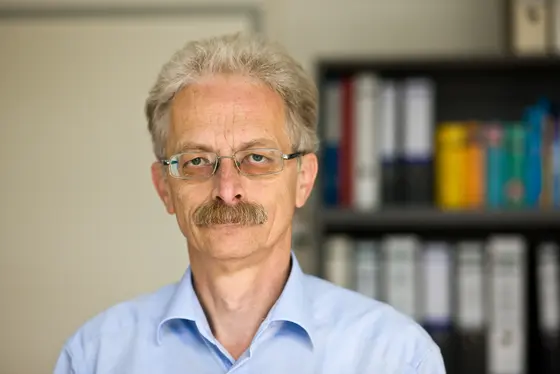This year's German Cancer Aid Award goes to a scientist from the Tübingen partner site of the German Consortium for Translational Cancer Research (DKTK): Professor Hans-Georg Rammensee. A researcher at the Interfaculty Institute for Cell Biology at Tübingen University, Rammensee is being honored for work on antigen presentation and T-cell recognition that has led to fundamental discoveries about the way the immune system recognizes tumors.
“I am very pleased about this award," says Rammensee, “because it will be very helpful as we advance further along a path which is often very laborious." The aim of the biologist’s work is to develop individualized vaccines that can activate a person's own immune system against a tumor. Vaccines against renal cancer and prostate cancer, developed at the university spin-offs immatics and CureVac, have already been successfully applied in clinical trials. In 2013, Rammensee was awarded a European Research Council (ERC) Advanced Grant for his project “MUTAEDITING," in which he plans to take a closer look at the interactions between genetic changes (mutations that cancer cells undergo during the course of a disease) and the responses of the human immune system.
Rammensee is a member of the German Consortium for Translational Cancer Research (DKTK) at Tübingen University, where the German Cancer Research Center has established a DKTK partnering site. He is joint coordinator of the DKTK research program on “Cancer Immunology and Immunotherapy," one of DKTK’s seven research programs, with Professor Dirk Schadendorf (of the partnering site in Essen/Düsseldorf).
“We are proud that Hans-Georg Rammensee, a DKTK scientist,has received this high distinction," said Professor Otmar Wiestler, Chairman of the Management Board of DKFZ and chief coordinator of the DKTK. “Rammensee's research is an excellent example of the translation of results from basic research into clinical applications. This is exactly what the German cancer consortium aims to do."
The German Cancer Aid Award is an important distinction in oncology. German Cancer Aid presents this award to emphasize the high relevance of cancer research and to recognize the commitment of individuals who are making substantial contributions toward improving the care of cancer patients.
The award will be presented on February 4, 2014, at 4 pm in Bonn.



